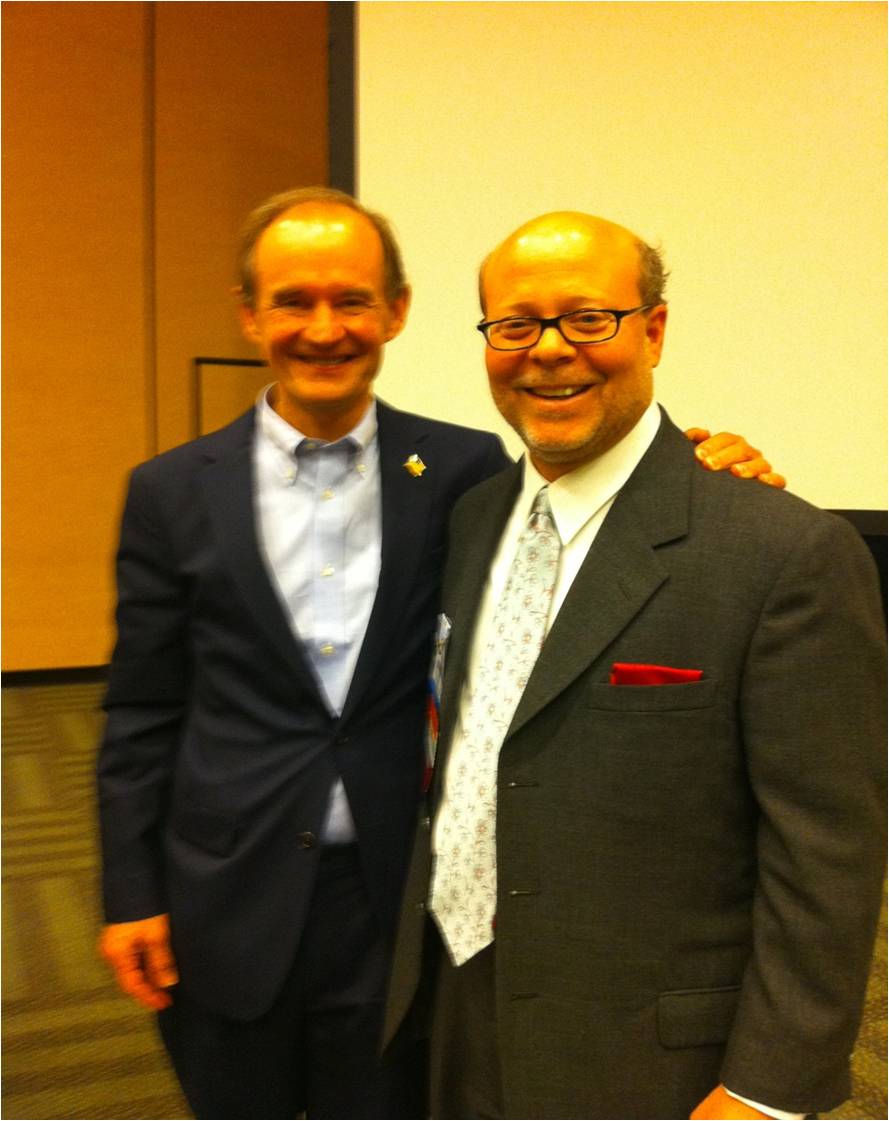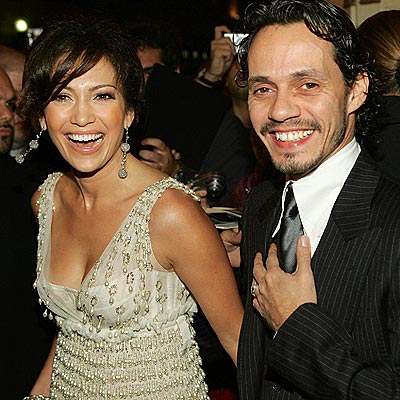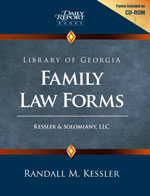 Cuba! To exchange legal ideas with Cuban lawyers, in Cuba, how unbelievable! I am so fortunate to be able to help with this venture next March. The idea is to promote understanding of family law in each country and to exchange ideas that will hopefully help families in both countries.
Cuba! To exchange legal ideas with Cuban lawyers, in Cuba, how unbelievable! I am so fortunate to be able to help with this venture next March. The idea is to promote understanding of family law in each country and to exchange ideas that will hopefully help families in both countries.
Again, the goal is to enhance American and Cuban lawyers knowledge and skills in family law, especially now that we may be on the verge of more Cuban and American family law issues as travel and immigration restrictions change. What an opportunity to learn each other’s legal systems with a view to helping Cuban and American families who will go through family law cases.
At this point I am simply excited about the program and am looking forward to it. If you have any ideas, suggestions or comments, please let me know.
 I have been very fortunate to have been invited to speak at a few seminars recently on high profile and high asset divorce. This month (November, 2011) I have already spoken in Mexico to Sports and Entertainment Lawyers, to Asset Recovery Specialists in Las Vegas, and on November 21, 2011, I am on a panel with David Boies and others to speak on High Profile representation (for program information, click here). Over 2,100 lawyers have signed up for this one. While it is always flattering to be asked to speak, being asked to speak alongside one of, if not the best lawyer in the country, David Boies is one of the highlights of my career. Just preparing with him and the other panelists has been a thrill. The real challenge will be to not say too much during our presentation so that I may learn as much as I can from him and our other panelists.
I have been very fortunate to have been invited to speak at a few seminars recently on high profile and high asset divorce. This month (November, 2011) I have already spoken in Mexico to Sports and Entertainment Lawyers, to Asset Recovery Specialists in Las Vegas, and on November 21, 2011, I am on a panel with David Boies and others to speak on High Profile representation (for program information, click here). Over 2,100 lawyers have signed up for this one. While it is always flattering to be asked to speak, being asked to speak alongside one of, if not the best lawyer in the country, David Boies is one of the highlights of my career. Just preparing with him and the other panelists has been a thrill. The real challenge will be to not say too much during our presentation so that I may learn as much as I can from him and our other panelists.
While we have been honored to represent our share of public figures, David Boies has been hired for the biggest cases by the highest profile clients (Al Gore, Mrs. McCourt, the NFLPA and the NBPA among others). This program will be educational for all, and I will have the best seat in the house. I am flattered and grateful to have been invited onto the panel and look forward to learning a lot from my co-panelists. If there is anything you want us to address during the program, let me know so I can see if we can work it in. If we can’t, I’ll do my best to get answers to your questions after the program.
 I am now a few months into my year as Chair of the American Bar Association’s Family Law Section. Wow, it goes fast. There seem to be fires to put out every week (or every day), but we have great staff at the ABA that really make things easier. There are budget concerns, planning of Continuing Legal Education Events, policy issues and the like. But most of all, there is a sense of responsibility that our group, our Family Law Section has a responsibility; a responsibilty to help. There are issues with military family law matters that we are addressing as well international custody issues (which will be discussed heavily at our Annual Fall Meeting in Las Vegas in two weeks).
I am now a few months into my year as Chair of the American Bar Association’s Family Law Section. Wow, it goes fast. There seem to be fires to put out every week (or every day), but we have great staff at the ABA that really make things easier. There are budget concerns, planning of Continuing Legal Education Events, policy issues and the like. But most of all, there is a sense of responsibility that our group, our Family Law Section has a responsibility; a responsibilty to help. There are issues with military family law matters that we are addressing as well international custody issues (which will be discussed heavily at our Annual Fall Meeting in Las Vegas in two weeks).
I said in my first Chair’s Column in the Family Advocate and in my speech as I became Chair, that I want to help everyone: lawyers, clients and others, understand the family law process better (chairs column1). Knowledge is power and we should all be as knowledgable as we can about the laws that so vitally affect families, especially children. I look forward to the seminar in two weeks and to making this and future years great and helpful to all lawyers and people, and especially to those dedicated to the field of family law and to helping those with family law problems.
 I have recently been asked to appear on Headline News to discuss family law cases. One recent one is the woman who has cancer and lost a custody hearing (click here for a link to the video).
I have recently been asked to appear on Headline News to discuss family law cases. One recent one is the woman who has cancer and lost a custody hearing (click here for a link to the video).
It seems like it was a really difficult case, but like all child custody cases, this one must have been, and likely was reviewed by the judge with the focus being “What is in the best interests of the children”. Like any case, it is easy to second guess. But the factors the judge likely focused on were those that affected the children and what would give them the best shot at good, stable futures. We must resist the temptation to judge the headlines and hope that if we ever need a judge to help determine our disputes, the judge will listen to all the evidence and do what is right, especially in the case of children. We can never know, but let’s hope this judge made the right decision and these children and this woman heals (and that the whole family heals).
 While prenuptial agreements aren’t for everyone, they are an absolute necessity for some people. I cannot tell you how often I have someone sitting in my office surmising “I wish we had signed a prenup.”
While prenuptial agreements aren’t for everyone, they are an absolute necessity for some people. I cannot tell you how often I have someone sitting in my office surmising “I wish we had signed a prenup.”
As you may or may not know, prenuptial or antenuptial agreements, colloquially referred to as prenups, are generally contracts entered by parties prior to their marriage (or civil union in some states). The substance of prenuptial agreements can vary, but typically they address the divorce issues of property division, property rights, liabilities, debts, and alimony. A properly drafted prenuptial agreement should address the commingling of separate and joint property. (Note, prenuptial agreements cannot address custody and child support, because the best interests of the children controls at the time of divorce.)
But how do you know if you need a prenup? While I encourage you to discuss this question in confidence with a lawyer trained in this intricate area of family law, I think the following checklist of questions will help guide you in determining if you should have that discussion with an attorney. If you or your future spouse answers “yes” to any of the following, a prenup might be appropriate for you:
– Do either of you consider yourself high net worth individuals?
– Do either of you have significant stock holdings, stock options, profit sharing, bonds, other investments, or cash?
-Do either of you own any real estate (including investment / rental property)?
-Are either of you a business owner?
-Do either of you currently earn more than $100,000.00 per year?
-Is there a disparate difference between your income / assets and those of your future spouse?
-Do you want your estate (or a part of it) to go to your children (and/or children of a former marriage) instead of your spouse?
-Do either of you have professional licenses or degrees?
-Do either of you have significant family wealth or expected future inheritance?
While this checklist is not intended as an all-inclusive list, it is one that should at least start the conversation with yourself (and perhaps your future spouse), about whether a prenup is appropriate. Again, I encourage you to speak with an attorney who specializes in this area of law if it is something that you are considering or are on the fence as to whether or not a prenup is right for you.
 The Annual American Bar Association meeting, held this year in Toronto, has been quite interesting. I have gone to meetings for all sorts of committees (Commission on Youth at Risk, and many others) and seminars on all sorts of topics (including gay marriage and the future of marriage and family law). At a committee breakfast, I learned of a social media initiative to educate parents on how their children may perceive their parents or other’s views on homosexuality. They have created a video that may go viral (thekidsarelistening.org).
The Annual American Bar Association meeting, held this year in Toronto, has been quite interesting. I have gone to meetings for all sorts of committees (Commission on Youth at Risk, and many others) and seminars on all sorts of topics (including gay marriage and the future of marriage and family law). At a committee breakfast, I learned of a social media initiative to educate parents on how their children may perceive their parents or other’s views on homosexuality. They have created a video that may go viral (thekidsarelistening.org).
There are also programs on line to help lawyers learn how to represent children including how to interview children located on the website of the Litigation Section of the ABA. This was done by the Litigation Section’s Children’s Rights committee.
But most importantly, as always, is the camaraderie. Seeing local metropolitan Atlanta judges and lawyers as well as family law attorneys and judges from across the country is very enjoyable for me. We are all here to learn and help and the amount of energy that lawyers are putting into improving our society and our communities is evident. Lawyers and others rising early and going to working meetings at 7:00 am on a Sunday to address the needs of foster children and child trafficking is really heartwarming.
I am glad to be an active lawyer and part of something bigger. Even though the ABA may support various ideas that often generate much discussion and disagreement, it is a peaceful way to effectuate change, and a most valuable endeavor.
 The 2011 American Bar Association Annual meeting which begins this week in Toronto, holds special meaning for me. On Friday August 5, 2011 I will be sworn in as Chair of the Family Law Section (FLS) of the ABA. I am so honored and excited. The FLS has 10,000 members who are all interested in the practice of family law, whether they are lawyers, judges or law students (over 9,000 are lawyers). Our goal, and mine, is to improve the practice of family law and to minimize the negative impact family law can have on families. My platform will be a continuation of our “Families Matter” project which has the reduction of such an impact on families as its goal.
The 2011 American Bar Association Annual meeting which begins this week in Toronto, holds special meaning for me. On Friday August 5, 2011 I will be sworn in as Chair of the Family Law Section (FLS) of the ABA. I am so honored and excited. The FLS has 10,000 members who are all interested in the practice of family law, whether they are lawyers, judges or law students (over 9,000 are lawyers). Our goal, and mine, is to improve the practice of family law and to minimize the negative impact family law can have on families. My platform will be a continuation of our “Families Matter” project which has the reduction of such an impact on families as its goal.
Practicing family law has been gratifying, knowing that we can and have helped many families. It also can and has been frustrating. When bad results happen to good people, especially to children, it can be devastating. But our job is not to be devastated and depressed, but to persevere and find better solutions. Through the ABA we are working to improve the system and to hopefully help all families achieve better results that are better for the whole family. Of course this is a difficult task, but it is one that any civilized society must undertake. All family law professionals (lawyers, judges, psychologists, accountants and others) play a role. Is our system perfect? No way. In fact, our systems vary from state to state and from community to community. But we are evolving. Today, family law is not an area of the law that is looked down upon. To the contrary, it is an area of the law viewed by many as one of the most important areas of law that exist. What other area has the ability to affect families and futures as much as ours? And with that comes a significant burden, a burden to help families and a burden to improve society.
I am glad to be in a position to help families. In my practice I often have that opportunity, and as Chair of the Family Law Section of the ABA, I have been given an even greater opportunity. I will try my best not to squander it and to do what I can to help families and professionals who are helping those families. If there is anything I can do, I hope you will call on me to serve you. It will be an honor to serve and I am sure, an experience I will never forget.
 Our country seems fascinated with the family lives, especially divorces of celebrities. Perhaps that is because we see celebrities as role models or who we often aspire to be. Thus it is interesting to see how famous people act, or react in situations that many of us non-celebrities also face.
Our country seems fascinated with the family lives, especially divorces of celebrities. Perhaps that is because we see celebrities as role models or who we often aspire to be. Thus it is interesting to see how famous people act, or react in situations that many of us non-celebrities also face.
The Lopez/Anthony divorce just happens to be the most current celebritiy divorce. What is interesting to me is only that it is so interesting to everyone else. All major news organizations reported on it immediately, even though there was really nothing to report. Perhaps it is that we romanticize our celebrities. We want their marriages to work since they are who we aspire to be?
Celebrities have many issues the average person will never have to face (crazy visitation schedules, nanny issues and significant asset division and/or support payments). But ultimately, celebrities are like anyone else. They get their feelings hurt, they have pride and they sometimes feel a need to “win” almost as if that is an achievement. But most often, they ultimately realize that it is best to put the legal process behind them and to resolve matters. Using lawyers to do their communicating often has its limits and almost always, celebrities figure out what they want to do and then tell their lawyers to “make it so”. They are used to controlling their own destiny and often more confident than the average person in their own decisions. After all, their own decisions got them where they are.
There are also many celebrities who meet with us (divorce lawyers) and never file anything. When they finally do make the decision to seek a divorce, they usually know what they want and are ready to make a deal. It would not surprise me if Jennifer Lopez and Mark Anthony, like many other famous couples, had already investigated the process for a very long time and had a good idea of what the outcome should and would be long before one or both of them made the decision to end the marriage.
And the way they handled it is the way it should be done. A joint statement like they have done letting the world know they are mature enough to handle it privately for the sake of their children is wonderful.
When two wealthy people fight, judges often are more upset. Every day in Family Court, judges see regular people scraping to survive and raise their children every day. It seems Ms. Lopez and Mr. Anthony recognized this and it is admirable that they have resolved matters outside of court. That is how it should always be done, in my opinion and I hope others will follow their example, if they decide to divorce.
 National TV Network news agencies are working on stories based on reports that children of divorce fare worse in school than others. USA Today just printed a story about poorer math scores for children of divorce (click here for the link).
National TV Network news agencies are working on stories based on reports that children of divorce fare worse in school than others. USA Today just printed a story about poorer math scores for children of divorce (click here for the link).
As a divorce lawyer this concerns me greatly. My opinion, based purely on my experience and the experience of the other lawyers in our office and friends throughout the bar, is that it is not necessarily the divorce that can harm children, as much as the kind of divorce that occurs. Certainly a ‘good” divorce between two mature adults might be better for children than a really bad marriage with much tension (or even violence) in the household every minute of the day?
There is life after divorce and the way the process of divorce unfolds may well set the tone, not just for how the parties interact going forward, but how the children do in school and in life. Children that see two parents who treat each other with respect, even if they are divorced will likely do better than children who see their parents consistently embroiled in arguments and litigation. Those children must, at the least, be very distracted by their parents’ tension. Worse yet, many may feel that they (the children) have a duty to support each parent and to comfort them (or at least one). This must take time away from school work and social development.
So what’s the solution? A “good” divorce (if a divorce is going to happen). The parents must recognize that their tension always trickles down and is felt by, and affects their children. There is an old Jewish saying that the best thing a father can do for a child is to love their mother. Well if he can’t love her, he should at least treat her with respect and pleasantness, and it should go both ways. Not for the parents’ sake, but to allow their children to continue to grow socially and educationally and to not be distracted and held back by their perceived need to be a “cructh” or support system for their parents. Such a feeling of having to help a parent through a divorce can certainly not help a child spend the needed time to excel in school and socially.
I know that I am not a psychologist and that these words and thoughts are just those of a lawyer who has practiced family law for almost a quarter of a century, but I believe them to be true and hope lawyers and litigants consider these issues as they proceed through their family law cases each day.
 I am so excited about the new Georgia Library of Family Law Forms. Last year I was asked to develop and edit this book and it has been a long process. The attorneys and staff at the firm have been wonderful and we have gone to great lengths to ensure that this book (and CD-ROM) of Family Law Forms will be beneficial to the Family Law Practitioner. There are over 200 forms and once we begin to receive feedback, I am sure we will add more forms and keep improving it each year with each new edition.
I am so excited about the new Georgia Library of Family Law Forms. Last year I was asked to develop and edit this book and it has been a long process. The attorneys and staff at the firm have been wonderful and we have gone to great lengths to ensure that this book (and CD-ROM) of Family Law Forms will be beneficial to the Family Law Practitioner. There are over 200 forms and once we begin to receive feedback, I am sure we will add more forms and keep improving it each year with each new edition.
Family Law seems to affect everyone, and almost every practicing lawyer is asked once, if not many times during their career “Can you help me with my family law matter”. While this forms book does not answer every single question, it does provide a wonderful start to those who are just beginning to practice family law as well as to those who want to have a full library of forms for themselves or their younger associates, paralegals or staff. I am very proud of it and look forward to your feedback. The first printing is scheduled for Fall, 2011 and there is an early bird discount for those who “pre-order”. Let me know what you think (you can click here for more info).
 Cuba! To exchange legal ideas with Cuban lawyers, in Cuba, how unbelievable! I am so fortunate to be able to help with this venture next March. The idea is to promote understanding of family law in each country and to exchange ideas that will hopefully help families in both countries.
Cuba! To exchange legal ideas with Cuban lawyers, in Cuba, how unbelievable! I am so fortunate to be able to help with this venture next March. The idea is to promote understanding of family law in each country and to exchange ideas that will hopefully help families in both countries.



 While prenuptial agreements aren’t for everyone, they are an absolute necessity for some people. I cannot tell you how often I have someone sitting in my office surmising “I wish we had signed a prenup.”
While prenuptial agreements aren’t for everyone, they are an absolute necessity for some people. I cannot tell you how often I have someone sitting in my office surmising “I wish we had signed a prenup.”


 I am so excited about the new
I am so excited about the new